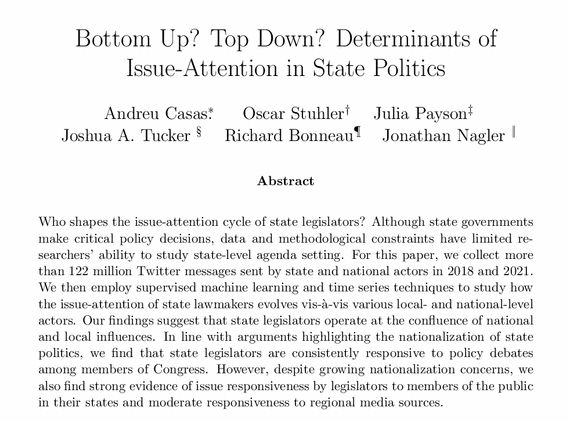Associate Professor of Political Communication and Computational Social Sciences at Royal Holloway University of London. Director of the London Social Media Observatory. UKRI Future Leader Fellow.
Reposted by Andreu Casas
Reposted by Chris Hanretty, Ben O’Loughlin, Christopher Barrie
Reposted by Will Jennings, Steve Peers, Andreu Casas , and 1 more Will Jennings, Steve Peers, Andreu Casas, Aleksandra Urman
Reposted by Andreu Casas
Reposted by Chris Hanretty, Ben O’Loughlin
Reposted by Andreu Casas
Reposted by Joshua A. Tucker, Andreu Casas












